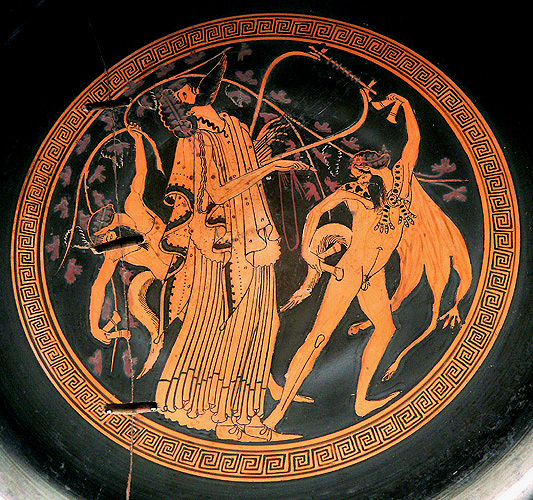Interior of an Attic red-figure cup (about 480 B.C.), representing Dionysus
with a group of Sileni, now in the Cabinet des Médailles of the
Bibliothèque Nationale (National Library), Paris. The god is
portrayed in an ecstatic trance posture, while playing the lyre and
showing himself as the pattern with which his own worshipers identified
themselves, reaching through music and dance a condition of ecstatic
“folly”. At Delphi, in fact, Dionysus was called Sphaleotas,
“Who makes one stumble”, since he induced an elation and
possession by the divine power. The Greek term ekpedan, “leaping
out”, was a technical term to indicate the Dionysian trance: a
drive to throw oneself which invades the entire body, subtracts it to
itself and drags it in an irresistible way (Detienne, 1986, English
transl. p. 58).
[Source: http://commons.wikimedia.org/wiki/File:Dionysos_satyrs_Cdm_
Paris_575_n2.jpg]


